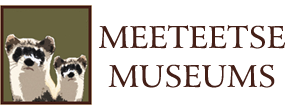Education Programs
Meeteetse Museums Education Programs
These are our most popular lesson plans. We have additional options for learning about first person narratives, pluralism in history, veterans of Meeteetse, and more! All of our lesson plans can be altered to fit a virtual platform including Zoom and Skype. We understand not all school groups can travel to the Museum. If you would like a member of our staff to travel to you (within Park County), let us know.
Contact programs@meeteetsemuseums.org for questions, collaboration, and more information.
Schools can explore the Meeteetse Museums on their own with the option of a variety of scavenger hunts. The museum staff will welcome the class with a short introduction before allowing students to explore the museum on their own. Typical self-guided tour times range from an hour to an hour and a half. Available scavenger hunts include the Technology Hunt, Meeteetse and Economics, and Collections on Exhibit.
Meeteetse is home of the endangered black-footed ferret. Through this tour students will learn about the endangered species, breeding efforts, and the history of the black footed ferret.
This program provides students with the opportunity to learn about Meeteetse history through occupations in and around the town.
Students will learn how animals adapt to their habitat through a tour of the Meeteetse Museum’s natural history collection. With the aid of touchable artifacts from the teaching collection, students will gain an understanding of the importance of habitat and physiological and behavioral adaptations.
Learn how the black-footed ferret has adapted to its environment through skeletal and behavioral adaptations! We’ll start our way at the head and work our way to the tail.
Students will use primary sources to learn about Meeteetse area culture before learning how we gain information about history when primary sources are limited. They will investigate what problems arise from these situations.
Address
PHYSICAL ADDRESS
1947 State Street
Meeteetse, Wyoming 82433
MAILING ADDRESS
PO Box 248
Meeteetse, Wyoming 82433
Hours
Hours: Closed until March 3, 2026
Meeteetse Museum © 2026 All Rights Reserved

